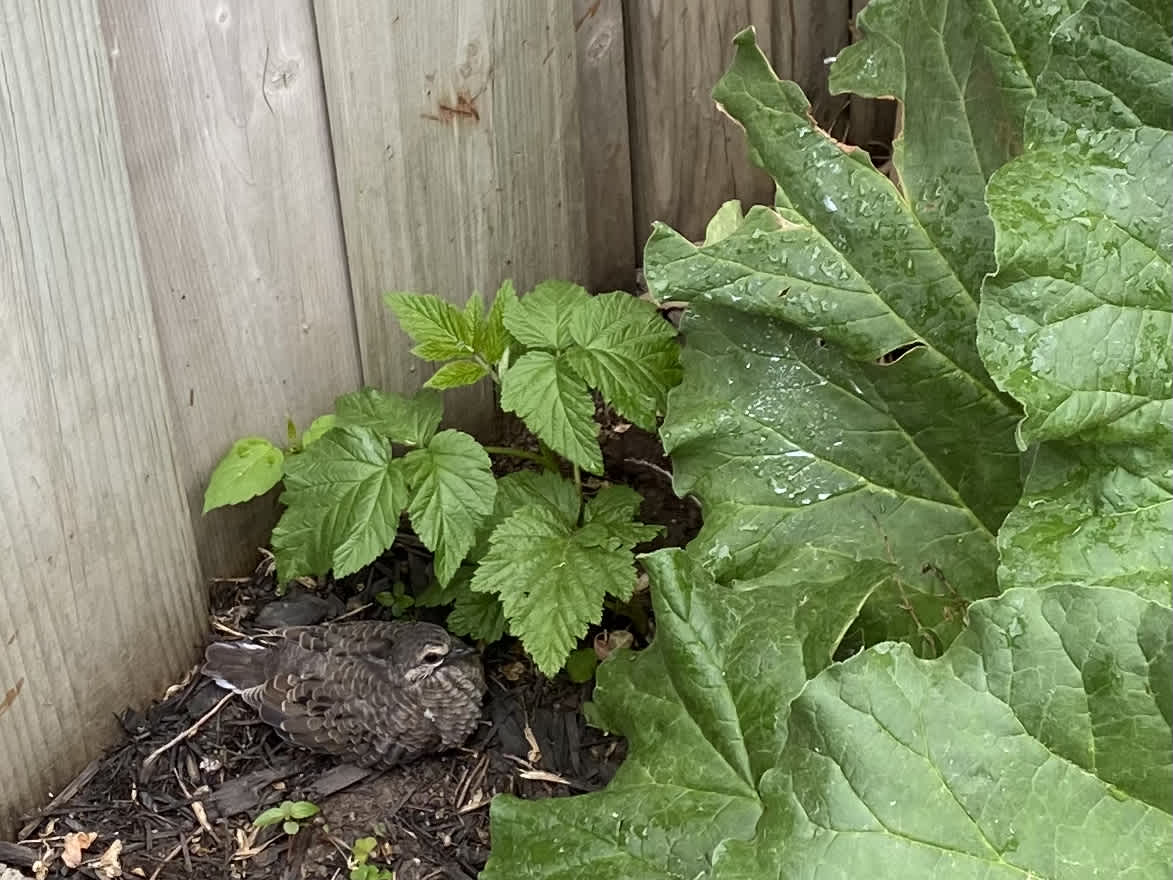Whenever the weather allows for it, we like to eat outside. At dinner time in our little courtyard in the city of Toronto, mother nature treated us to a beautiful scene. A few days later it turned into an invaluable lesson...
Two doves and a chick
A mourning dove landed on the fence, looking us straight in the eye. "What a wonderful sight," I thought, "I bet it's eyeing something on our plate." Without breaking the line of sight, the dove flew over to the side of the deck, even closer, testing the boundaries of its comfort zone.
"Roocoo! Roocoo!" A few minutes later mommy dove arrives, a little chick trailing inches behind her. The family reunited, they waggled to an open space a bit further away, while we watched the scene unfold at a safe distance. By now we realized that daddy had scouted the environment, checking our reactions to his proximity. He must have considered us safe, the little one would not be harmed.

To our surprise, the adults took off, leaving the little one alone. Stunned how this beautiful scene suddenly turned brutally cruel, we moved a little bit closer and saw it helplessly shiver, fragile and disoriented, unable to fly. We grabbed some seeds to help it strengthen, but it scurried away as soon as we approached, finding refuge under the rhubarb leaves. We deposited some seeds in the vicinity, but left it at peace, hoping it would survive the night outside alone.
The next morning, we found the chick still hiding in exactly the same place, looking a tiny bit healthier. So we dropped a pinch more seeds before getting some breakfast ourselves, only a few meters away. "Roocoo! Roocoo!" Mommy and daddy flew in searching for their chick. After not too long and after a few weak chirps, the family reunited once again. From where we were enjoying our morning coffee, we could see the chick being fed. Our hearts filled with hope that it would survive, not abandoned by its parents, but merely encouraged, forced to grow up to be independent and strong. During lunch, we witnessed the scene once more.
More wildlife visited us at dinner time. A fat city squirrel jumped on the fence and noticed the fragile chick hiding under the rhubarb leaves. It stopped, visibly interested to get a closer look. Was there danger? Seeing this scene unfold, we had no idea how to interpret the situation, fearing for the chick's life and once again reminded of the possible dangers and cruelty of mother nature. Would the squirrel jump the chick? Did it consider it a playmate? Would it be satisfied with a look from an uncomfortable distance or would it soon lose interest and get on with its day? Out of nowhere, a pair of loudly cooing doves charged the squirrel, wings open wide, while making themselves as tall as they could. We saw the power struggle in full swing before our very eyes. Clearly the parents were never far away, ensuring a safe environment for their chick, while allowing it to make its own mistakes, learning along the way.
And then, just like that, the little chick took off and flew away, soon followed by one of the doves while the other parent finally succeeded in fending off the danger. We spontaneously cheered! Excited that the chick had found its wings, that it now was sure to survive. Proud of the parents for encouraging its chick to grow up. Humbled by the life lesson we received. A minute later both adults reunited, cozying up to one another, the chick no doubt already taking a next step into its development.
Leadership and its teams
The hardest but most valuable part of coaching teams on their agile journey is the first step, both for the leadership and them. Nurturing autonomy requires letting go, letting the teams find their way and make their own mistakes. It also requires creating a safe environment in which they can learn, but don't face debilitating danger.
While working with teams once in a while I see the mourning dove scene play out with great success. Other times well-intended overprotective leadership behaviours or controlling tendencies impede the teams' progress.
Leadership requires setting out a clear vision and supporting the teams in achieving it the way they see fit. Letting go enables autonomy and initiative, controlling nurtures dependence.

